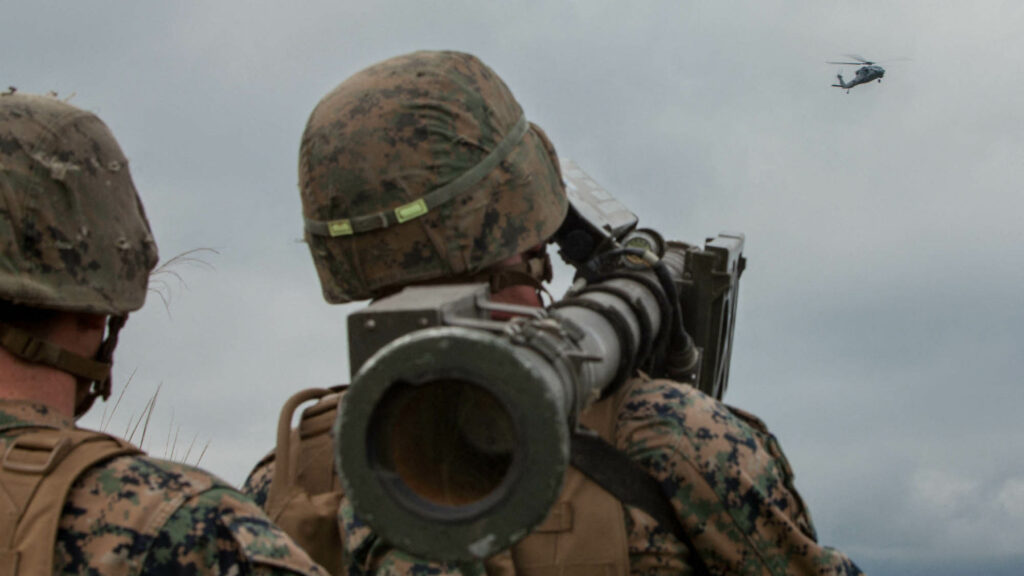Belgium is among 18 European countries (17 EU Member States and Norway) that have joined forces to set up an ammunition procurement system, aiming to supply Ukraine with the 155-millimetre artillery shells or bullets it has been explicitly asking for.
In a letter to EU Member States earlier this month, Ukrainian Defence Minister Oleksii Reznikov stated that his troops are using 110,000 shells of that 155-millimetre calibre every month, and asked the EU to provide them with artillery shells.
Now, the European plan aims to release €1 billion to free up such munitions from existing stocks or orders already placed. Another €1 billion is to be used for the joint purchase of fresh ammunition for Ukraine in the form of a group purchase – as was the case with Covid-19 vaccines a few years ago.
For the procurement procedure, the 18 countries are calling on the European Defence Agency (EDA) to boost European production capacity. Therefore, EU Commissioner for the Internal Market Thierry Breton has embarked on a European tour of the 15 companies in 11 countries that produce these shells.
"He has visited Bulgaria and France and is in Czechia on Wednesday (today) to hear from all those companies what the obstacles are to increase production," his spokesperson, who would not give a list of all the companies for security reasons, told De Morgen.
Additionally, it is no coincidence that Norway is joining the 17 EU Member States (Austria, Belgium, Croatia, Cyprus, Czechia, Estonia, Finland, France, Germany, Greece, Luxembourg, Malta, the Netherlands, Portugal, Romania, Slovakia and Sweden): the 155 mm shells are the NATO standard for artillery, and the Norwegian Nammo company produces them.
While the countries are stressing that they will be able to deliver a million artillery shells to Ukraine in the coming year, it is already being questioned whether the agreed €2 billion will be enough to achieve that. Some insiders in the decision-making process are already saying that double the amount will be needed.
The cost of such a shell is between €3,300 and €3,900 each, and Estonia already made it clear that the delivery of one million of them amounts to €4 billion. The tight timing is also being criticised: the first orders would only come in May, but analyst Sven Biscop (Egmont Institute/UGent) told De Morgen that this is "very fast, in multinational terms."
What is Belgium doing?
Belgium is one of 18 countries committed to procurement through the EDA: in principle, its contribution will be 3.4% of the cost, which is the distribution key Europe uses for Belgium's contribution to the European budget – calculated based on Belgium's share in the EU's gross national income.
In practice, this will come down to about €70 million for Belgium, unless the European pot of €2 billion is not enough.
In any case, the Belgian army no longer has such ammunition. The Belgian Defence had howitzers until 2002 when they were sold to the company OIP in Oudenaarde, which resold them to the UK. Presumably, the ammunition was also sold at the time.
No company in Belgium is currently producing this type of shell; the Walloon weapon and ammunition manufacturing company Mecar (in the Hainaut province) only produces up to 105 millimetres. Still, there might still be something in it for the company, Mecar's Valérie Michaux told De Morgen. "Mecar has the capacity to produce parts, which we then ship to Nexter Munitions in France for final assembly."
Related News
- Zeebrugge LNG terminal indirectly funds Russian war effort
- EU to deliver one million artillery shells to Ukraine
- Flemish Peace Institute calls for closer tabs on dual-use material
While the European Union initially started as a project to keep the internal peace, it is now also focused on the external situation, with the war in Ukraine acting as a watershed moment for European defence policy. For the first time, the EDA – which was established back in 2004 – will have such a major role in it.
"It seems logical and efficient to organise something like this at the European level, but it is still a lot of money and there has to be a thorough social debate about it," Diederik Cops of the Flemish Peace Institute told the newspaper.
The issue is that the European defence budget does not go through the European multiannual budget, but is fully financed by the Member States, meaning it also escapes scrutiny in the European Parliament. Even at the national level, little debate is still possible, Cops said. "It is now too much of an intergovernmental decision behind closed doors."

